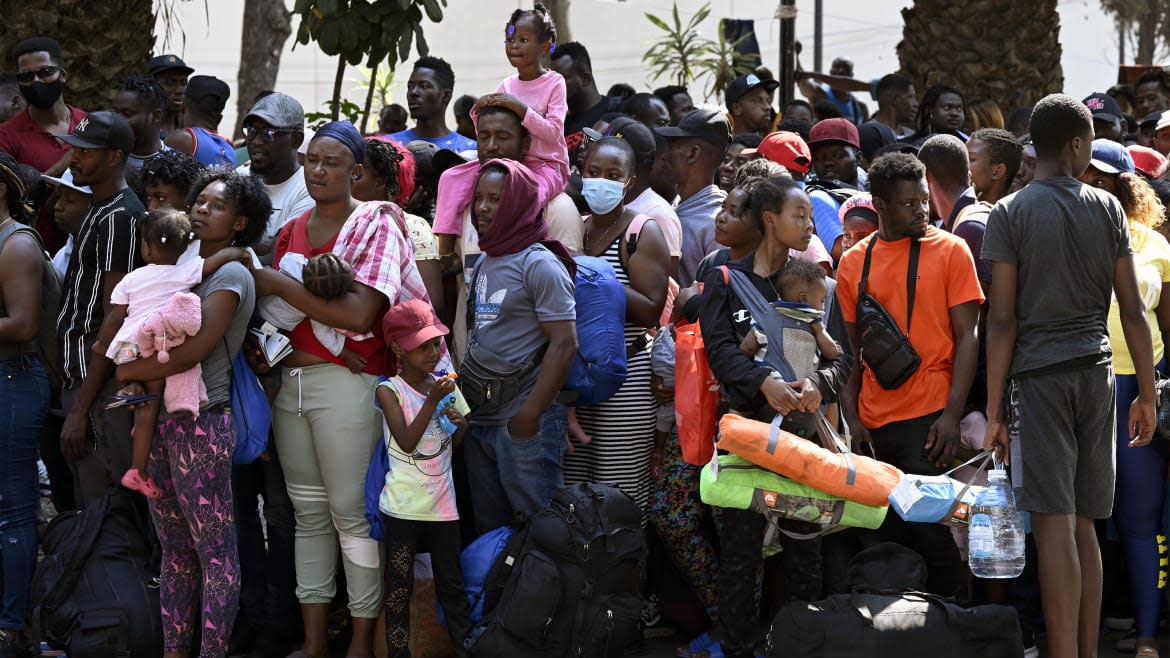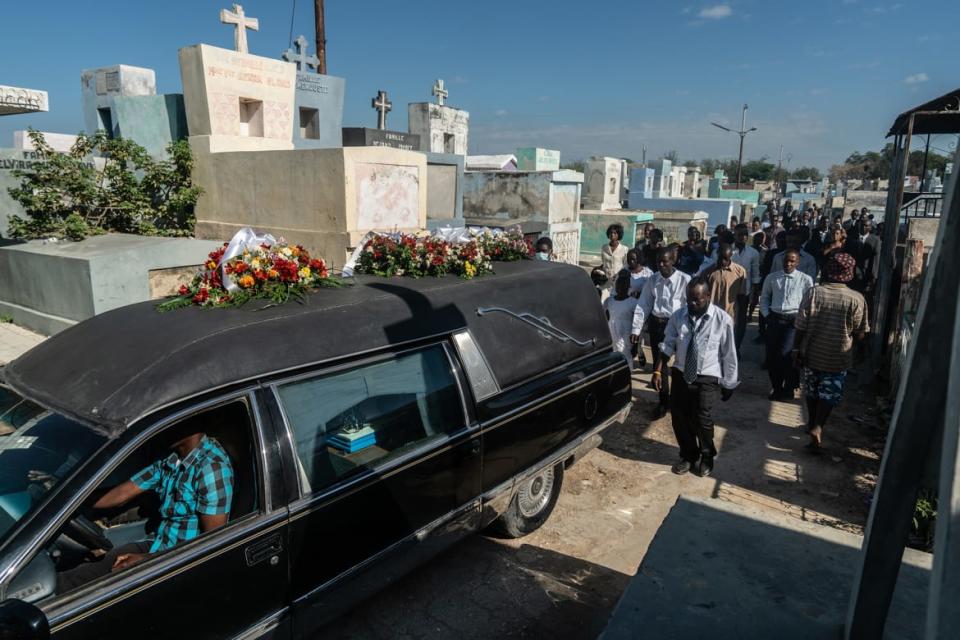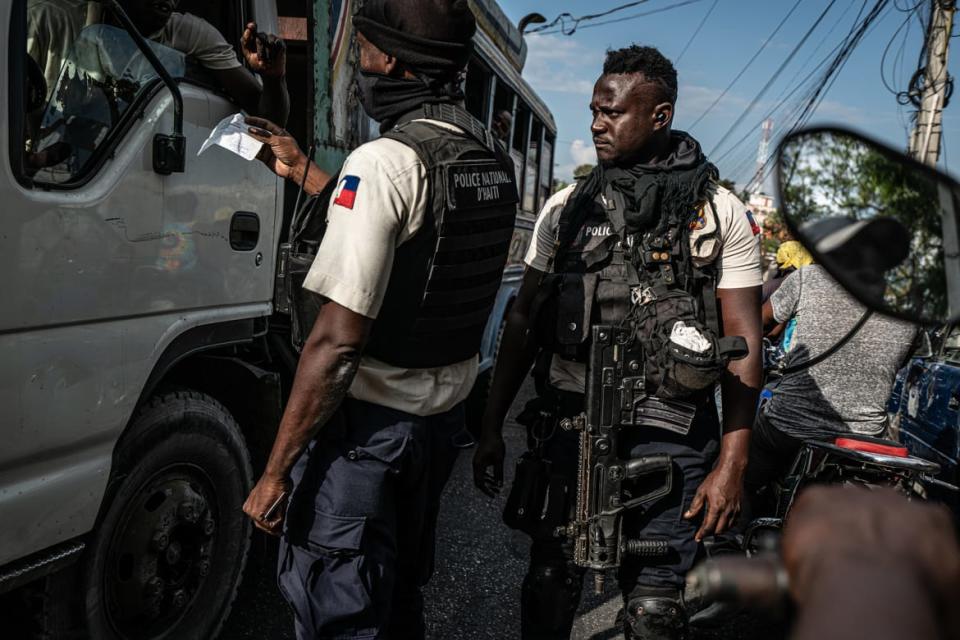Haitian Refugees Are Treated Worse Than Latino Migrants

- Oops!Something went wrong.Please try again later.
The migrant crisis has emerged as a leading threat to President Joe Biden’s re-election campaign. And while the needs of migrants seeking asylum and economic opportunity has rarely been more urgent, the ways would-be immigrants from Northern Triangle countries are treated in the U.S. is vastly different than those arriving from Haiti.
Why? If the argument rests on humanitarian aid, support, and respect of human dignity, then surely Haitians shouldn’t be sent home immediately, as they flee their homes for their lives.
Make no mistake, I am not weighing the humanity or validity of the needs of one group over the other. Both deserve support and come from largely destabilized environments in their home countries.
Judge Aileen Cannon Could Get Herself Booted From Trump’s Classified Documents Case
But the fact is Latino migrants—who are often coming to the U.S. for economic reasons—are treated more favorably in the U.S. than Black Haitians fleeing a failed, lawless, violent state. In recent weeks, armed gangs attacked federal buildings, dozens of Haitians were killed, and 15,000 people became homeless.
The violence across Haiti is palpable, with its capital taking center stage. Gang wars have led to the prime minister stepping down. A state of emergency and a nighttime curfew were invoked to try to curb the gang attacks in Port-au-Prince. But the gangs remain unabated. The U.S. has also implemented several unfortunate policy decisions that only make it harder for Haitians, such as use of a mandatory mobile application form (CBP One) to request asylum. Racial discrimination and violence against Haitian refugees in Mexico was cited as a threat by Amnesty International.

A funeral procession in the Grand Cemetery on Feb. 23, 2024, in Port-au-Prince, Haiti. There has a been fresh wave of violence in Port-au-Prince where, according to UN estimates, gangs control 80% of the city.
And much like the facial recognition software used across America that has shown biases when adapting to Black faces, so does CBP One’s app. The Guardian reported: “The U.S. government’s mobile app for migrants to apply for asylum at the U.S.-Mexico border is blocking many Black people from being able to file their claims because of facial recognition bias in the tech, immigration advocates say.” People with darker skin tones have a hard time being able to register through the CBP One app, eliminating their opportunity to apply for asylum.
Former President Donald Trump sent thousands of Haitians back to the country on deportation flights. But, for his part, President Biden hasn’t done much better, deporting Haitian asylum seekers despite the instability of their government, political assassinations, and crumbling infrastructure. And there’s currently a lawsuit in D.C. federal court accusing the Biden administration of racial discrimination and human rights violations of Haitian asylum seekers.
Haitian migrants aren’t the face of migrant humanitarian calls across America, they aren’t the face of diplomatic efforts and have no stake in the 2024 election calculus. We aren’t seeing calls for work permits for Haitian refugees, we aren’t seeing widespread rallying cries for housing assistance. The overall rejection of this population is eye opening.
Chicago’s Black Community Feels Left Behind During the Migrant Crisis
According to the International Rescue Committee (IRC) over 90 percent of Haitian asylum seekers in Mexico lack resources to cover basic needs. In real terms this translates to nearly all Haitian asylum seekers lacking food, housing, and basic information (Spanish to English translation is often available for Latino asylum seekers, while Creole translation is much harder to come by).
While American voters debate the virtues of migrant humanitarianism and who deserves a shot at a path to citizenship, Haitian migrants are kicked to the back of the line. They are all but invisible to the U.S. immigration system and often ignored or treated as unworthy.

Haitian National Police check the papers of vehicles and drivers on Feb. 20, 2024, in Port-au-Prince, Haiti.
According to a recent report by NBC News, the U.S. is still sending Haitians intercepted at sea back, despite violence in their home country. This should enrage anyone fighting for immigration reform and the basic human rights of asylum seekers. But when it comes to Haitian migrants, the advocacy community, and elected leaders always come up short.
Could race play a role? Amnesty International thinks so.
Last June on International World Refugee Day, Amnesty International called out the Americas for their anti-Blackness in asylum seeker acceptance. “Racist migration and asylum policies only exacerbate the harm already inflicted on people forced to endure and flee the humanitarian and human rights crises in Haiti,” said Erika Guevara-Rosas, Americas director at Amnesty International. “States across the Americas must fulfill their international human rights obligations without discrimination, assess the protection needs of Haitians seeking refuge in fair and effective asylum procedures, and refrain from returning them to Haiti,” she added.
Right-Wing Influencers Are Going Full Racist in Anti-DEI Rants
Jamel Connor of the American Immigration Lawyers Association (AILA) aptly described the United States’ culpability in the disasters that Haitian refugees endure. “The U.S. has no right to turn its back on Haitian immigrants… American asylum laws give the United States permission to plant pro-American governments around the globe and ravage those countries’ resources. After there are no more resources to exploit or benefits to be had, the U.S. government turns a blind eye to the suffering of the people it leaves behind.”
This escalated violence has led to the evacuation of American citizens from Haiti, but thus far there is no safe harbor for Haitians themselves. According to the Immediate Past President of AILA and Director of the Haitian Bridge Alliance, Allen Orr, “Now is the time to do more than just evacuate American citizens, we can also extend protections to Haitians that are currently in removal in need of temporary protective status.”
The U.S. has a responsibility to empower Haiti to build a future of prosperity and security, but in the immediate term—we must acknowledge and support asylum seekers in desperate need. Comprehensive and human immigration reform policy can’t exclude or turn a blind eye to the desperate situation in Haiti.
Get the Daily Beast's biggest scoops and scandals delivered right to your inbox. Sign up now.
Stay informed and gain unlimited access to the Daily Beast's unmatched reporting. Subscribe now.

